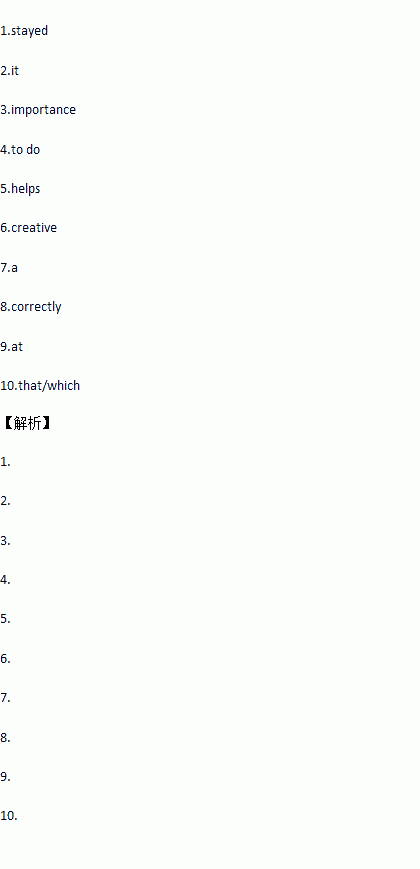题目内容
Have you ever 1.(stay) up late? If so, you should know that not getting enough sleep can make you tired . Not sleeping enough can also make 2.hard to think clearly the next day.
Scientists who study sleep have known that getting a good night’s sleep is of great 3.(important). It helps kids to be able 4.(do) their best during the day.
A recent study shows that sleep 5.(help) improve problem--- solving skills and 6.(creat) thinking abilities. In the study, two groups of students answered 7. math problem. The group that slept for eight hours solved the problem8.(correct) more often than the group that did not get enough sleep.
While you sleep9. night, your brain is busy doing its “homework”. It sorts out(整理) the information 10. you get in the day. Getting enough sleep each night can improve your thinking ability. That will surely help you do your best at school or work.


 ill be on display in the supermarket
ill be on display in the supermarket